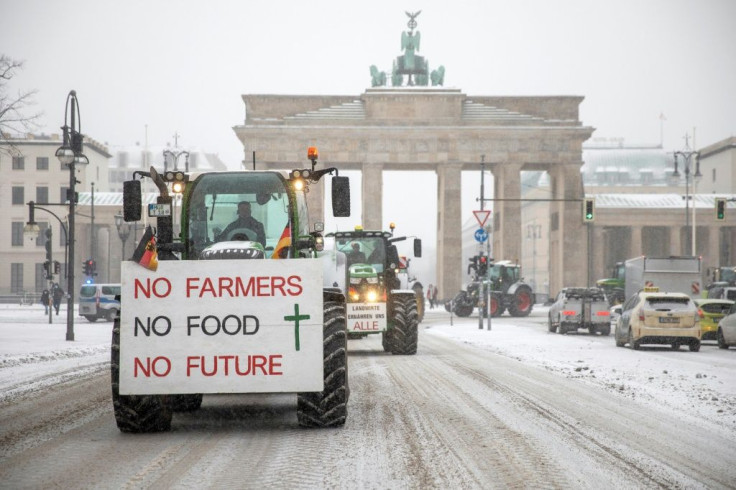German Govt Angers Farmers With New Insect Protection Bill
The German government on Wednesday proposed legislation to halt a dramatic decline in insect populations, but drew immediate fire from farmers who said the new measures threatened their livelihoods.
The "insect protection" law, which aims to restrict the use of pesticides, is the result of two years of wrangling within Chancellor Angela Merkel's coalition government.
Hundreds of farmers drove their tractors into central Berlin this week to protest against the legislation, which still needs to pass through parliament.
"No farmers, no food, no future" read a sign fixed to a tractor demonstrating near Berlin's Brandenburg Gate on Tuesday.
The policy package's flagship measure is the phasing out of the controversial weedkiller glyphosate by the end of 2023.
It also bans the use of herbicides and insecticides in national parks and includes rules for reducing light pollution at night.
"People can't live without insects," said Environment Minister Svenja Schulze, calling the law "good news for insects and the future of our ecosystems".
The legislation also limits the use of pesticides near major bodies of water, but the final version of the text leaves it up to Germany's individual states to set out detailed requirements.
Agriculture Minister Julia Kloeckner said some crops grown in protected areas would be exempt from the tougher rules, and there would be exception for vineyards.
But the president of the German Farmers Association (DBV), Joachim Rukwied, slammed the plans as "shortsighted" and a "bad signal for the cooperation between the agricultural industry and nature conservationists".
"The legislation poses an existential risk to many farming families," he said.
German environmental group BUND welcomed the law.
"Every kilo of pesticide saved, every square kilometre of pesticide-free land and every light source saved are positive for insects and nature," it said in a statement.

Biologists have long warned that plummeting insect populations impact species diversity and damage the ecosystem by disrupting natural food chains and plant pollination.
A 2017 study in Germany was one of the first to raise global alarm about the loss of insects.
It found that the biomass of flying insects across German nature reserves had declined by more than 75 percent in 27 years, triggering warnings of an "ecological apocalypse".
The gulf between farmers and environmentalists has widened in Europe's top economy in recent years, where nature protection has shot to the top of the political agenda, partly spurred by the Fridays for Future strikes.
The opposition Green party now regularly comes second in opinion polls after Merkel's conservative bloc, and it could well end up in a coalition government following September's general election.
The shift in the public mood has spurred Merkel's government to act on animal welfare, leading to recent pledges to stop the culling of male chicks and end the practice of castrating piglets without anaesthetic.
But farmers complain that they are left carrying the cost of the new measures, and that the stricter regulations won't allow them to compete with cheaper agricultural products from abroad.
The German Farmers' Association estimates that the planned legislation could reduce available agricultural land by seven percent.
It has called for measures built around incentives instead of bans.
Agriculture Minister Kloeckner on Wednesday pledged "financial support" and compensation for farmers affected by the insect protection plans, without giving detailed figures.
She also said the government would co-finance the purchase of so-called precison farming equipment, which can distribute fertiliser and pesticides more accurately, reducing the amount used.
© Copyright AFP 2024. All rights reserved.





















